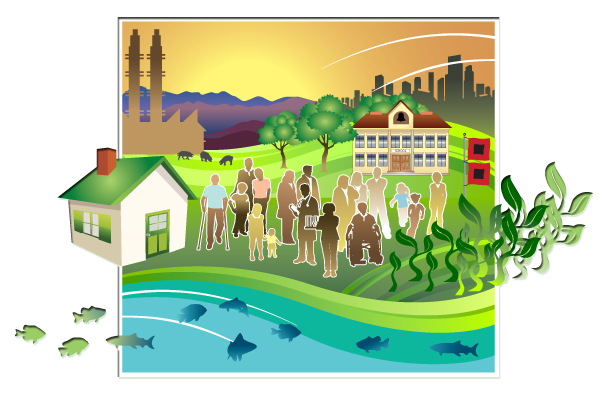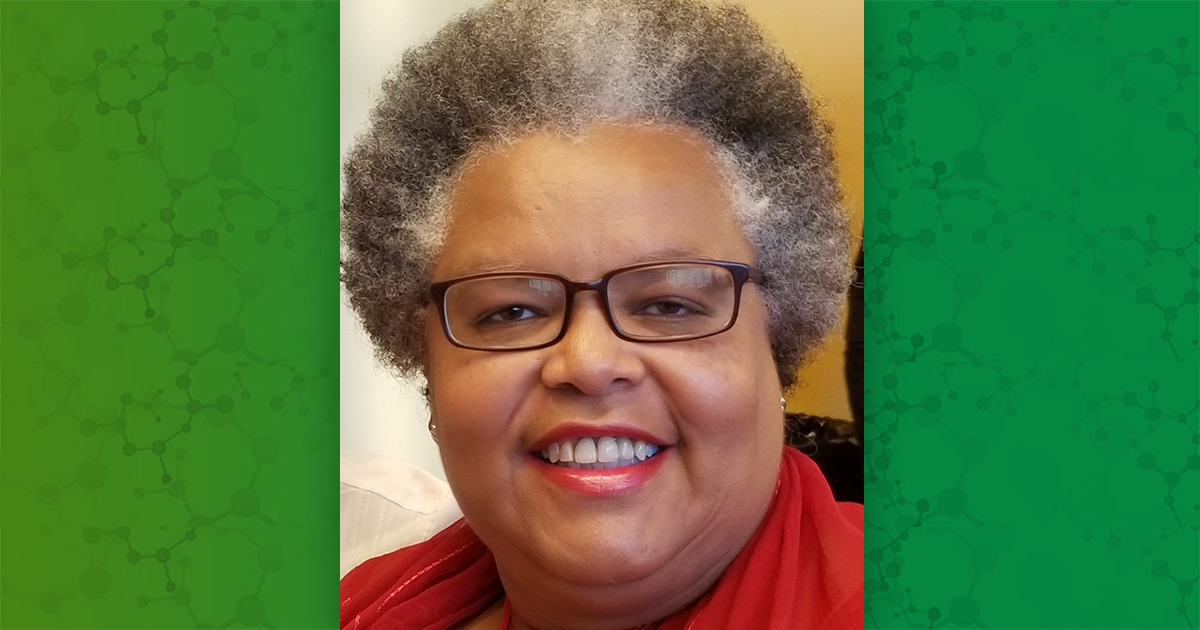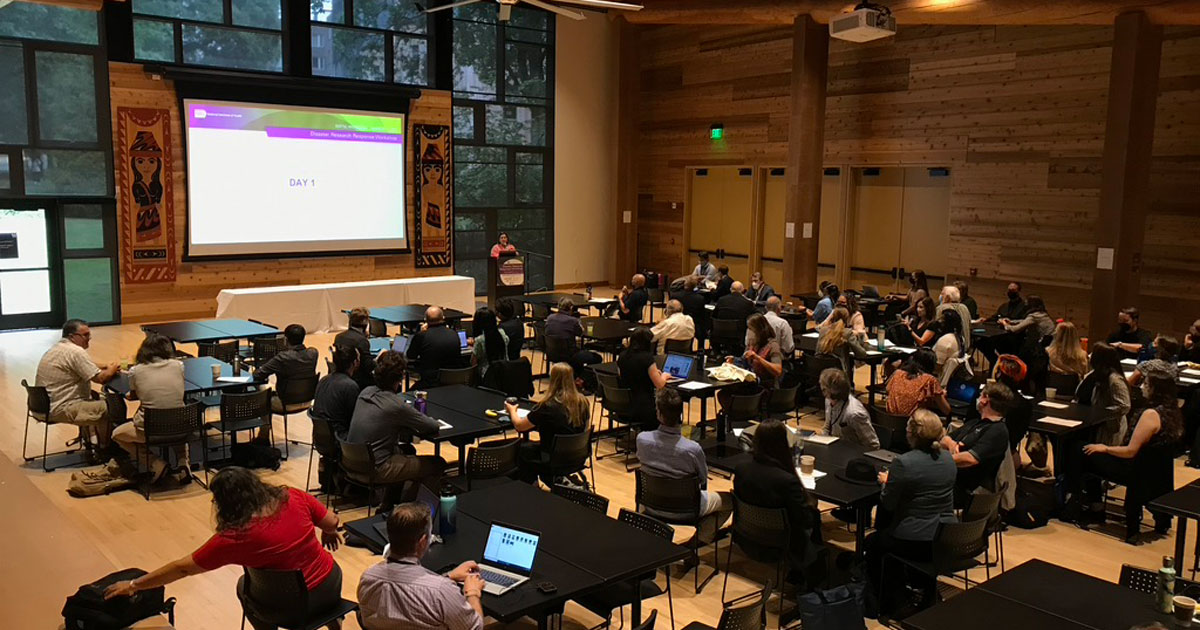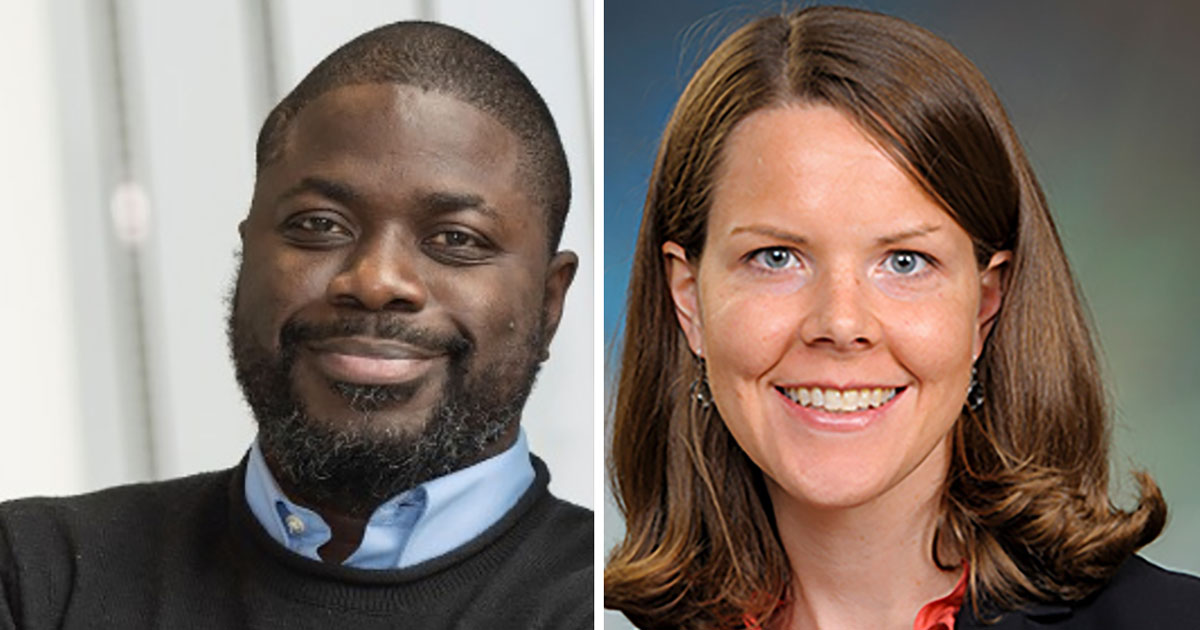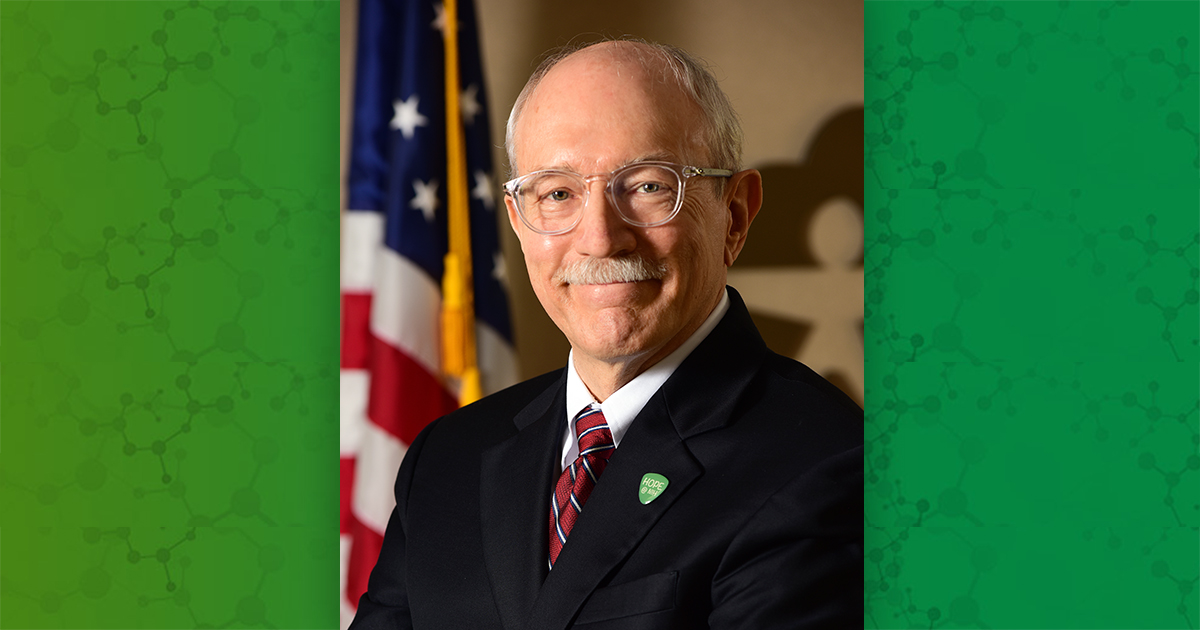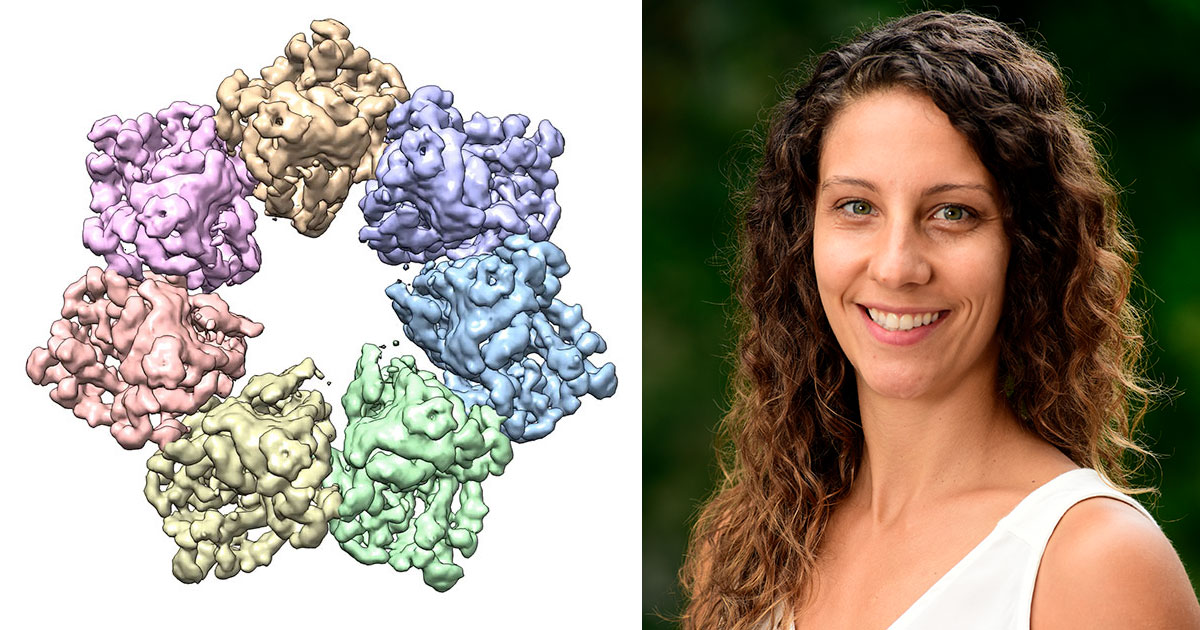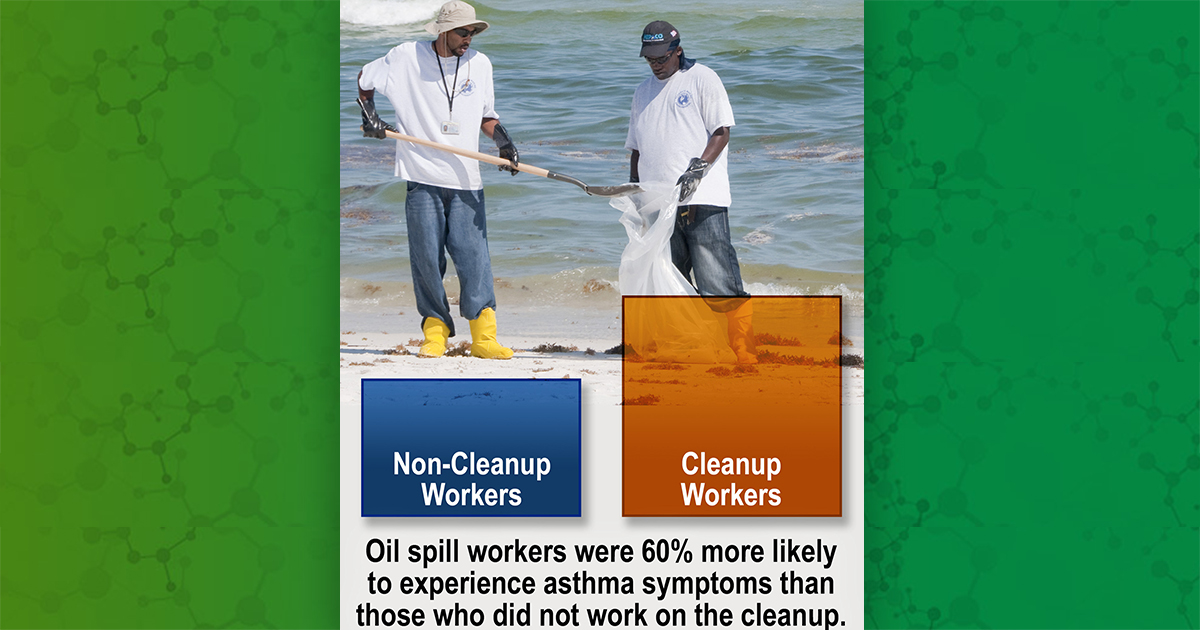Community Partnership Engages Parents to Reduce Child Lead Exposure
In-home education interventions can reduce risk of lead exposure for children, which remains a problem in many parts of the country.
Researchers at the University of Michigan School of Public Health and School of Social Work, and community partners from Healthy Homes Coalition (HHC) of West Michigan, a nonprofit serving Kent County, Michigan, developed a training to engage parents on how to reduce their children’s exposure to lead. Researchers and community partners also developed a separate training curriculum to increase the educators’ self-efficacy in delivering training in the face of burnout. A May 2022 paper describes how the partnership developed this unique training program.
“This project was possible because of the relationship we had built with HHC from our prior work while establishing a Children’s Environmental Health Center — a former NIEHS program,” reflected Alison Miller, Ph.D., who served as Director of the Community Outreach and Translation Core of University of Michigan’s Children’s Center, funded by NIEHS and the U.S. Environmental Protection Agency. “Partnerships are critical to this type of community engagement work where we as researchers support the community partners who are really driving the program based on residents’ needs.”
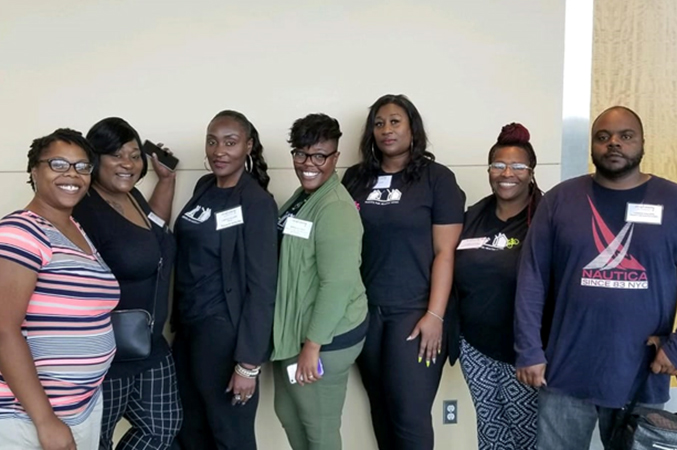
HHC parent volunteers and peer educators participate in HHC activities. (Photo courtesy of HHC)
Visiting Homes to Deliver Lead Mitigation Training
In 2014, a community health survey in Kent County indicated that half of residents lived in homes built before 1978 and were therefore at risk of lead paint exposure. Additionally, many children had documented elevated blood lead levels. HHC had worked to address these concerns before engaging with the academic researchers. For example, HHC supported efforts to remediate lead in homes of low-income residents with young children and conducted community outreach, but they wanted to expand program offerings to include parent-focused, in-home lead prevention education. Having partnered with the researchers on community outreach projects in the past, HHC approached the research team for assistance developing an educational curriculum to engage underrepresented parents of children at risk for lead exposure in and around the city of Grand Rapids.
Researchers and HHC staff developed a Lead 101 curriculum that followed a conceptual framework that encourages parents to take action for their children, thereby promoting positive outcomes for themselves, their families, and their community.
Through outreach efforts, HHC community partners recruited 62 families to receive training through home visits by trained peer educators. During each home visit, peer educators presented evidence-based materials that demonstrated how lead exposures can occur in the home and how such exposures can be harmful to children. The peer educators then toured the home with families, indicated potential home sources of lead exposure, and demonstrated how to reduce exposure by regularly cleaning up dust and using lead-safe mopping practices, for example.
The peer educators also left educational materials for each family to reference. Parents were informed of the benefits of reducing their children’s lead exposure and of engaging with local community groups that address lead exposure prevention.
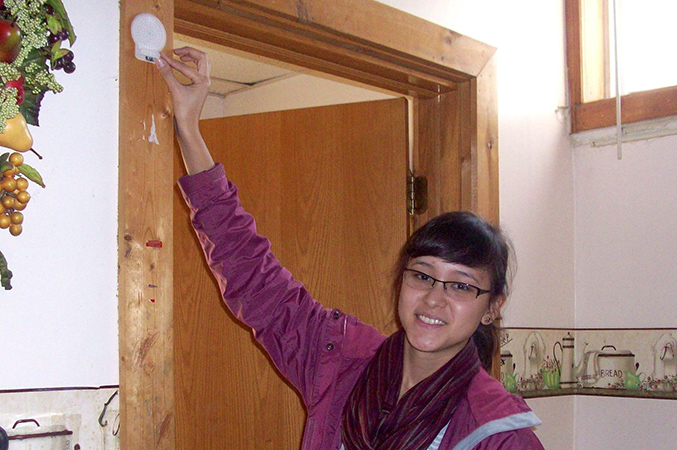
An HHC home visitor provides services in a resident’s home. (Photo courtesy of HHC)
Reflective Practice Training Addresses Health Worker Burnout
While facilitating the Lead 101 program, peer educators and other HHC staff experienced stressful situations, such as helplessness to address some families’ difficult living circumstances. Therefore, HHC was interested in addressing possible burnout. The team developed a training curriculum to address burnout by incorporating reflective practice concepts and activities. A social worker on the team facilitated the training.
“The Reflective Practice curriculum for community health workers was a novel effort we didn’t see addressed in existing literature,” reflected Miller. “There is a large body of evidence on using reflective practice to help address clinician burnout. While community health workers’ experiences differ, some of the same elements are there, like working directly with people under stressful circumstances to address health concerns. Our interdisciplinary research team adapted this training to the unique work of the community health professionals and included strategies that have been shown to help burnout.”
The training encouraged the community health professionals to reflect on their experiences visiting residents’ homes, and to describe their emotional and physical responses at the times they felt overwhelmed. Some of the workers described seeing pest infestations and other difficult living conditions that they themselves had experienced, triggering strong emotional reactions. The facilitator directed the group to use strategies such as breathing exercises and body scans to alleviate these responses. The training also described consequences of rumination and provided skills to re-focus attention away from stressful experiences.
Trainings Empower Parents and Community Health Workers
Survey results of the Lead 101 program indicated that parents reported high self-efficacy in reducing their children’s lead exposure following the home visit. Parents indicated they understood sources of lead exposure in the home and intended to take action to prevent exposure.
With regard to the Reflective Practice training, participants indicated they planned to use the techniques in their work. Participants were also satisfied with the training and found it interesting.
In the future, the researchers will support HHC’s efforts to expand their parent-focused work on lead prevention by developing more evaluation criteria to better understand efficacy of the Lead 101 program. HHC ultimately hopes to scale-up Lead 101 in partnership with the local health department. The team also seeks to expand the Reflective Practice training to other public health scenarios—for example with community health workers who address home environmental hazards such as radon, mold, and household chemicals.
HHC staff member and study co-author Jacklyn Hernandez affirmed her enthusiasm for the potential of this work and the power of partnerships. HHC’s focus on parent empowerment encouraged HHC to connect with a wide range of community resources beyond those directly focused on lead prevention, such as Head Start and local food banks.
Hernandez noted, “These partnerships not only helped families out, but also reduced stress on staff because they had a larger network of options to recommend to families – it literally takes a village.”
Department of Health and Human Services Seeks Input on Mental Health Well-being in Context of Climate Change
The Substance Abuse and Mental Health Services Administration (SAMHSA) is seeking input on how it can address mental health conditions and substance use disorders in the context of climate change and health equity. SAMHSA’s mission is to reduce the impact of mental illness and substance abuse and does so through prevention and treatment efforts. The agency is asking for input on how its programs, technical assistance and trainings, and other resources can help people and communities confront the impacts of climate change. Specifically, they are asking for input to 12 questions on topics such as what SAMHSA’s top priorities should be, vulnerable populations, lessons learned with respect to behavioral health in climate-related emergencies and natural disasters, intergenerational trauma, and access to behavioral health and climate change resources. Responses are due October 31.
SAMHSA also launched a Climate Change and Health Equity webpage, which covers topics such as the health effects of climate change, risk assessment and planning, outreach and education, and adapting after a disaster.
U.S. Federal Efforts Address Health Effects of Climate Change
The U.S. federal government has engaged in several efforts related to increasing awareness of climate change and extreme heat.
A new website, Heat.gov, provides clear, science-based information about reducing the health risks of extreme heat. The site, which was launched in July, is intended to help the public and decision-makers prevent heat-related illnesses and deaths by providing information to reduce the health, economic, and infrastructural effects of extreme heat. It has heat information from across U.S. federal agencies, such as the National Oceanic and Atmospheric Administration and the Department of Health and Human Services, as well as events, news articles, heat and health program funding opportunities, and information to help at-risk communities.
Another recent effort addressing heat-related health concerns, the Let’s Talk About Heat Challenge, showcased effective communication methods around the issue of extreme heat. The winners, who were announced in August, are raising awareness of extreme heat risks for vulnerable groups such as people who live in areas with fewer trees and less green space. The challenge was meant to address communities’ needs in developing clear messages about the risks of extreme heat, what people can do to stay safe, and long-term strategies to build cooler communities. The challenge was sponsored by several federal agencies, including the U.S. Environmental Protection Agency and the U.S. Department of Health and Human Services, with support from the National Climate Task Force. In the next few months, the challenge’s sponsors will work with the winners to share the heat safety messages with communities across the country and build capacity for communities to communicate the risks of extreme heat.
Lastly, the U.S. federal government launched Climate Mapping for Resilience and Adaptation, which presents information from across the federal government to help people consider their exposure to climate-related hazards. The tool’s live dashboard enables communities to see the risks they’re facing from climate change and how their community might be affected in the future. State, local, Tribal, and territorial governments and leaders can use the website to develop climate resilience plans and get information about federal grants for resilience projects. The official fact sheet describes the tool and how it builds on other federal climate data efforts.
National Academies Report Advises on Clinical Guidance Around Per- and Polyfluoroalkyl Substances
The National Academies of Sciences, Engineering, and Medicine hosted a public briefing in July on their 2022 report, Guidance on Per- and Polyfluoroalkyl Substances (PFAS) Exposure, Testing, and Clinical Follow-up. The report was sponsored by NIEHS and the Agency for Toxic Substances and Disease Registry (ATSDR), prompted by tensions between people in PFAS-exposed communities who want preventive care and clinicians who may not know what care to provide. The report recommends that the Centers for Disease Control and Prevention (CDC) advise clinicians to offer PFAS blood tests to people who likely have a history of elevated exposure and provides advice on further clinical care, such as regular screenings. The report details how to test, what to test for, and the risks and benefits of testing. It also recommends that the CDC and public health departments support clinicians by creating educational resources on PFAS exposure, potential health effects, and testing. The briefing covered topics from the report such as the approach to the study, the findings on the health effects of PFAS, recommendations to inform clinical care, and suggestions for revising ATSDR clinical guidance. The recording of the briefing and the meeting materials are now available.
What Do Peripartum Participants Want to Know About Their Own Chemical Exposure Study Results?
NIEHS-funded researchers held focus groups to determine what peripartum people want to know about their own results from chemical exposure studies. Focus group participants were recruited from an existing cohort created to study in utero and early life exposures and implications for child health outcomes. Participants, who were uncomfortable about toxic exposure during pregnancy and parenthood, generally wanted to play a more active role in reducing exposure for themselves, their families, and their communities, but had limited time and resources to do so. Two themes about reducing chemical exposures emerged from the focus groups. On an individual level, participants wanted specific, practical, individualized suggestions, including product recommendations, to reduce exposure. Participants also wanted support to engage in collective action. For example, they wanted to have clear guidance, such as what specifically to ask of legislators to pass laws aimed at reducing exposures or promoting product ingredient disclosures. Additionally, connections to local collective action efforts may make it easier for peripartum people to join such action. Rachel Morello-Frosch, one of the researchers involved in the study, is an environmental health scientist with the University of California Berkeley. You can read more about her in the November 2020 NIEHS Grantee Highlight and hear her talk about redlining on the June 2022 Environmental Health Chat Podcast.
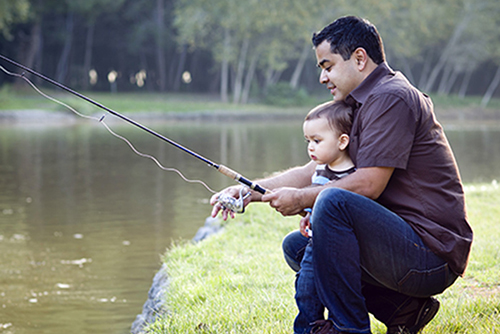
PEPH Environmental Health Chat Podcast Series
Campaign Promotes Eating Safer Fish
PEPH Environmental Health Chat Podcast Series
Campaign Promotes Eating Safer Fish
Pollutants such as arsenic and mercury, which can harm human health, have been found in fish in the Cape Fear River in southeastern North Carolina. The Stop, Check, Enjoy! campaign helps fishers in the area know what fish are safe to eat and the risks of eating other fish from the river. Elizabeth Shapiro-Garza, Ph.D., a researcher at Duke University and director of the Community Engagement Core of Duke’s NIEHS-funded Superfund Research Program, and Veronica Carter, a board member of the North Carolina Coastal Federation and member of the Superfund Research Program’s Community Advisory Board, discuss the campaign and tips on how to choose and prepare fish to reduce exposure to contaminants in our latest podcast.
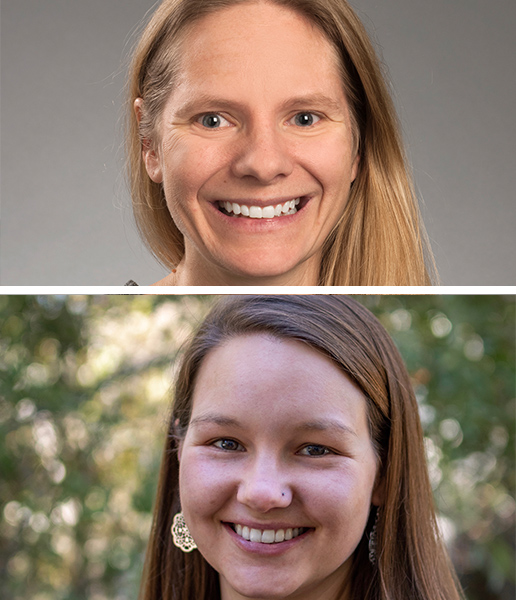
PEPH Grantee Highlight
Cynthia Curl, Ph.D. and Carly Hyland, Ph.D.
Cynthia Curl, Ph.D., has been interested in the connection between food systems and communities since growing up on a rural farm. As head of the Curl Agricultural Health Research Lab at Boise State University, she now studies how food production systems affect human health. Carly Hyland, Ph.D., a postdoctoral researcher in Curl’s lab, studies pesticide exposure and risk perception in both male and female Latinx agricultural workers, an area that Hyland says is important because a lot of previous work focused only on male farmworkers. Curl’s lab works with community groups which allows them to effectively disseminate research findings to local communities and provide recommendations on how to reduce farmworkers’ pesticide exposure.
Funding Opportunities
Accelerating the Pace of Child Health Research Using Existing Data From the Adolescent Brain Cognitive Development (ABCD) Study (R01-clinical Trial Not Allowed)
Supports activities proposing to conduct analyses of existing ABCD Study data to accelerate the pace of research on child health and development, including: cross-sectional and/or longitudinal analyses; development of new or advanced statistical methods; and/or integration of ABCD data with other existing datasets that share common data elements. NIEHS is interested in applications that will use ABCD data resources to examine the contribution of environmental exposures on brain and development and to identify sensitive time windows of development that may confer individual susceptibility and also to identify protective factors that may mitigate environmental-induced changes. An R21 funding opportunity is also open.
Deadlines: June 5, 2022; October 5, 2022; February 5, 2023
Notice of Special Interest (NOSI): Climate Change and Health
Encourages applications that address the impact of climate change on health and well-being over the life course, including the health implications of climate change in the United States and globally. NIEHS is leading the NIH-wide Climate Change and Health Initiative, of which this NOSI is a part. NIEHS is interested in research that addresses the impact of climate change on environmental health and innovative approaches to the development of prevention and intervention strategies to reduce the impacts of climate change on environmental health, particularly in communities most susceptible to these impacts. Researchers who wish to submit applications regarding this NOSI must select from a list of funding opportunity announcements sponsored by various NIH institutes and centers. Researchers interested in applying for climate change-related Small Business Innovation Research funding can see Notice of Special Interest (NOSI): Innovative Technologies for Research on Climate Change and Human Health (R43/R44 Small Business Innovation Research (R43/R44 Clinical Trial Optional). Researchers interested in applying for climate change-related Small Business Technology Transfer funding can see Notice of Special Interest (NOSI): Innovative Technologies for Research on Climate Change and Human Health Small Business Technology Transfer (R41/R42 Clinical Trial Optional).
Deadlines: August 8, 2022; October 5, 2022; November 3, 2022
Research to Action: Assessing and Addressing Community Exposures to Environmental Contaminants (R01 Clinical Trial Optional)
Encourages multidisciplinary projects to investigate the potential health risks of environmental exposures of concern to a community and to implement an environmental public health action plan based on research findings. Projects supported under this program are expected to employ community-engaged research methods to not only conduct research but also to seamlessly translate research findings into public health action. Check out the Research to Action Currently Funded Grantees webpage for a sense of the types of projects supported through this FOA.
Deadline: January 21, 2020
Research Enhancement Award Program (REAP) for Health Professional Schools and Graduate Schools (R15 Clinical Trial Not Allowed)
The REAP program will enable qualified scientists to receive support for small-scale research projects. It is anticipated that investigators supported under the REAP program will benefit from the opportunity to conduct independent research; that the grantee institution will benefit from a research environment strengthened through REAP grants; and that students at recipient institutions will benefit from exposure to and participation in scientific research in the biomedical sciences so that they consider careers in biomedical research. The REAP funding opportunity emphasizes the engagement and inclusion of health professional, undergraduates, and/or graduate students in research. Since diversity strengthens the research environment, REAP grantees are encouraged to recruit and include students from diverse backgrounds, including those from groups underrepresented in the biomedical research workforce. NIEHS will accept applications describing research projects that will have a defined impact on the environmental health sciences and must have a research focus on exposure-health related responses from environmental agents within the mission interest of the NIEHS.
Deadlines: June 25, 2022; October 25, 2022
Mechanism for Time-Sensitive Research Opportunities in Environmental Health Sciences (R21 Clinical Trial Not Allowed)
This funding opportunity announcement (FOA) has been extended (NOT-ES-22-013). This FOA is intended to support novel environmental health research in which an unpredictable event or policy change provides a limited window of opportunity to collect human biological samples or environmental exposure data. The primary motivation of the FOA is to understand the consequences of natural and human-made disasters, emerging environmental public health threats, and policy changes in the U.S. and abroad. The distinguishing features of an appropriate study are 1) the unforeseen nature of the event, 2) the clear scientific value and feasibility of the study and 3) the need for rapid review and funding, substantially shorter than the typical NIH grant review/award cycle, for the scientific question to be approached and for the research design to be implemented. It should be clear that the event offers a limited opportunity to address unique and important research questions that could only be answered if the project is initiated with minimum delay. Investigators should describe their capacity to begin the project upon award.
Deadlines: November 10, 2022; December 1, 2022; January 3, 2023; February 1, 2023
Open Competition: Environmental influences on Child Health Outcomes (ECHO) Pregnancy Cohort Study Sites. Clinical Trial Not Allowed (UG3/UH3)
Invites applications for new ECHO Cohort Study Sites to extend and expand the capacity of the ECHO Cohort to further investigate the roles of a broad range of early exposures from society to biology, including the preconception period, on ECHO’s five key child health outcome areas—pre-, peri-, and postnatal; upper and lower airways; obesity; neurodevelopment; and positive health—among diverse populations. The objectives of this FOA are to solicit applications to 1) lead collaborative ECHO Cohort science, 2) recruit new pregnant participants from diverse populations, their resulting offspring, and, if available, the conceiving partner, 3) develop and implement the ECHO Cohort Preconception Pilot Study, and 4) implement the ECHO Cohort Data and Biospecimen Collection Protocol using the ECHO Cohort consortium’s central data capture system, e.g., REDCap Central. This FOA runs in parallel with companion FOAs that solicit applications for Cohort Study Sites only for a limited competition of follow-up of existing ECHO Cohort participants (RFA-OD-22-019), for ECHO Cohort Study Sites only for a limited competition of follow-up of existing ECHO Cohort participants AND of recruitment of new pregnant participants, their resulting offspring, and, if available, the conceiving partner (RFA-OD-22-018), for an ECHO Coordinating Center (RFA-OD-22-021), for an ECHO Data Analysis Center (RFA-OD-22-022), for an ECHO Measurement Core (RFA-OD-22-020), and for an ECHO Laboratory Core (RFA-OD-22-016).
Letter of Intent Due Date: October 21, 2022
Deadline: November 21, 2022
Maternal Health Research Centers of Excellence (U54 Clinical Trial Optional)
Invites applications to participate as a Research Center as part of the Maternal Health Research Centers of Excellence initiative. The purpose of this initiative is to generate innovative approaches to address preventable maternal mortality, decrease severe maternal morbidity, and promote maternal health equity in partnership with communities that are most affected (i.e., Blacks/African Americans, American Indians/Alaska Natives, Hispanics/Latinos, Asian Americans, Native Hawaiians and other Pacific Islanders, sexual and gender minorities, socioeconomically disadvantaged populations, and underserved rural populations). Persons with disabilities are also a priority population. This initiative will use an integrated multi-level approach encompassing structural, social, and biobehavioral research strategies to address the multiple contributing factors that lead to adverse maternal health outcomes and health disparities. Proposed research can address maternal health in the pre-pregnancy, pregnancy, or postpartum period, provided that the research outcomes directly address severe maternal morbidity and/or maternal mortality and equitable health care. This funding opportunity announcement (FOA) runs in parallel with companion FOAs that seek applications for an Implementation Science Hub/Resource Center (RFA-HD-23-037) and a Data Innovation and Coordinating Hub/Resource Center (RFA-HD-23-036). It is expected that all components of the Centers of Excellence, Research Centers, and Hubs, work collaboratively to design and implement research projects, including data collection and data sharing.
Letter of Intent Due Date: November 2, 2022
Deadline: December 5, 2022
PHS 2022-2 Omnibus Solicitation of the NIH, CDC, and FDA for Small Business Innovation Research Grant Applications (Parent SBIR [R43/R44] Clinical Trial Not Allowed)
Enables U.S. owned-and-operated small businesses to conduct research and development that has a strong potential for commercialization. This award and the associated PHS 2022-2 Omnibus Solicitation of the NIH and CDC for Small Business Innovation Research Grant Applications (Parent SBIR [R43/R44] Clinical Trial Required) provide funds for small businesses to stimulate technological innovation in the private sector and strengthen the role of small business in meeting federal research and development needs. The related Small Business Technology Transfer announcements [PHS 2022-2 Omnibus Solicitation of the NIH for Small Business Technology Transfer Grant Applications (Parent STTR [R41/R42] Clinical Trial Not Allowed) and PHS 2022-2 Omnibus Solicitation of the NIH for Small Business Technology Transfer Grant Applications (Parent STTR [R41/R42] Clinical Trial Required)] aim to foster technology transfer through cooperative research and development between small businesses and research institutions.
Deadlines: January 5, 2023; April 5, 2023
Community Partnerships to Advance Science for Society (ComPASS) Program: Community-Led, Health Equity Structural Intervention Initiative (OT2)
Invites applications from community organizations to work in collaboration with their research partners to develop, implement, assess, disseminate, and sustain a community-led health equity structural intervention. The intervention initiative has three phases. It starts with a two-year phase (Phase I) for planning, development, piloting (as appropriate), and building partnerships. It will be followed by a six-year intervention implementation phase (Phase II) and will conclude with a two-year phase (Phase III) for assessment, dissemination, and sustainability efforts. Receipt of an award for Phase I does not guarantee a recipients’ continuation to Phase II or Phase III of the ComPASS Program. A letter of intent is required. Select submitters will be invited to submit a full application.
Letter of Intent Due Date: November 28, 2022
Deadline: January 23, 2023
Notice of Special Interest (NOSI): Administrative Supplements for Research on Sex And/Or Gender Influences (Admin Supp Clinical Trial Optional)
Supports research highlighting the impact of sex and/or gender influences in human health and illness. The proposed research must address at least one objective from the five strategic goals of the 2019-2023 Trans-NIH Strategic Plan for Women's Health Research. A broad range of research topics studied at the basic, pre-clinical, translational, and clinical levels that address the role of sex and/or gender in health and disease are encouraged. Studies that explore sex or gender influences or the intersection of sex and gender are also encouraged.
Deadlines: January 26, 2022; January 26, 2023
Notice of Intent to Publish a Funding Opportunity Announcement for Community Partnerships to Advance Science for Society (ComPASS): Coordination Center (U24 - Clinical Trial Optional)
The NIH Office of the Director, Office of Strategic Coordination intends to solicit applications for the Community Partnerships to Advance Science for Society (ComPASS) Coordination Center (CC). The CC will provide administration, coordination, data, and research capacity-building and training support to the ComPASS consortium. The consortium includes both community-led, health equity structural intervention projects that intervene on structural factors that create and perpetuate health inequities and health equity research hubs to provide localized technical assistance to the projects. A single coordination center will be funded as an integral part of the ComPASS Program.
Deadline: January 27, 2023
Notice of Special Interest (NOSI): Research on the Health of Women of Understudied, Underrepresented and Underreported (U3) Populations (Admin Supp Clinical Trial Optional)
Supports projects highlighting common sources of disparities in women and girls’ health with a specific emphasis on those that integrate measures beyond the individual level and consider perspectives from multiple disciplines. A broad range of research topics studied at the preclinical, clinical, behavioral, and translational levels are encouraged. Proposals incorporating multilevel interventions, using community-engaged approaches, and focusing on one or more NIH-designated health disparities populations are also desired.
Deadline: January 31, 2022




